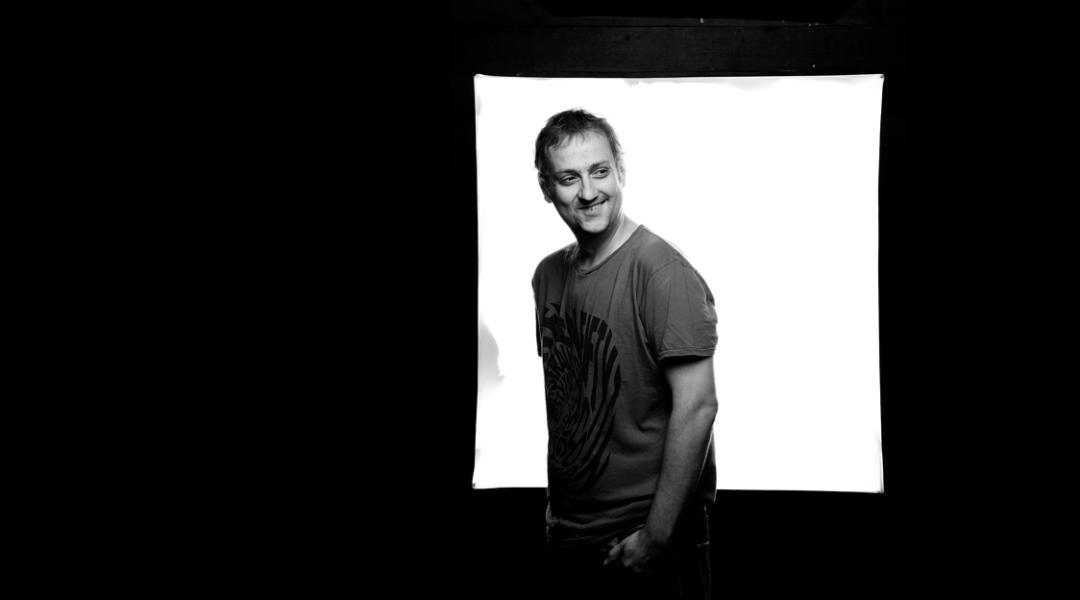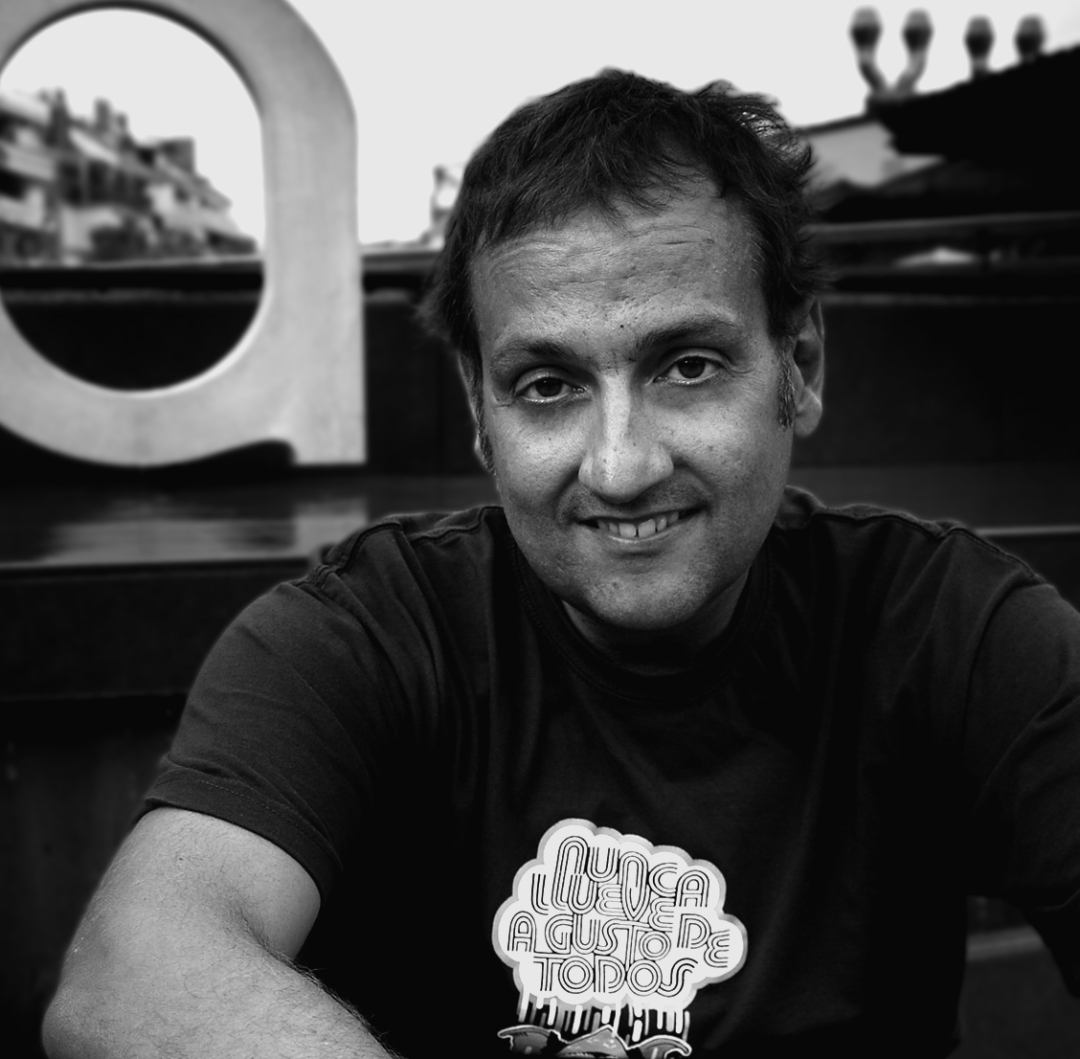Albert Espinosa
The yellow world

After a three-year break from the media, Albert Espinosa doesn’t stop because, as he himself declares, “after a pandemic, we must live life to the fullest”. He’s ready with two books—the first, 'La noche que nos escuchamos' [The night we listened to each other], is out on the 6th of October— and new audiovisual projects after the recent success of the film 'Live is life', based on his novel 'Los secretos que jamás te contaron' [The secrets they never told you].
Scriptwriter and writer Albert Espinosa (Barcelona, 1973) declares that seeing some of his phrases immortalised on the skin of his readers leaves him speechless. His philosophy has also turned him into a bestselling author, with more than two and a half million books sold and translated into 56 languages.
Three years ago, you announced that you were retiring from public life... Thankfully, you’re back.
When I made that announcement, I needed to take a break from doing interviews. And it was a good call because I wanted to try other things that are more compatible with not being in the public eye. But people thought that I was dying... My doctor told me that my life would end at a certain age, but it hasn’t happened. I’m still alive. I’m really happy and I want to share this joy with my audience. My return is also related to the pandemic: I wanted to tell another kind of story and close the circle.
You beat cancer as a teenager, and you’ve survived with one lung, one leg, and half a liver. What have you learnt the most from life?
I think being alive and fighting, overcoming everyday life. In the end, I think it’s all down to staying ahead of the curve. Not long ago, I anticipated a potential event, my own death, to enjoy those last three years with my family and friends, but my plan was cut short by the pandemic. Knowing that I should have died a few years ago has made me see life differently.
“My doctor told me that my life would end at a certain age, but it hasn’t happened. I’m really happy and I want to share this joy with my audience”
You’ve been dubbed the “author of optimism”, do you think you fit that description?
It’s funny because I don’t consider myself an optimist, rather a realist: I see both the pros and cons. I do believe that you have to make the most out of life. The thing is that now there’s a trend towards pessimism, and being optimistic turns you into an easy target. I see life as yellow; I believe in light. Being happy or radiating happiness attracts a lot of haters, but there must be a reason so many are looking for that light, right?
You’re a bestselling author. What advice would you give someone who wants to become a writer?
Have a good ending and never stop trying. At my last book signings, I’ve seen more young people —I think the pandemic has brought more new readers to my books— and they’re looking for writing advice. I always recommend starting a novel or script with the ending. Write an ending worthy of a story and hold on to it. And find your own world; I have my own, the yellow world, and I believe in it.

Albert Espinosa has sold more than two and a half million books in 56 languages. © Image courtesy of Albert Espinosa
If success is related to talent, how would you define it?
For seven years I taught an intensive script course and, from the first moment, you can tell who does and doesn’t have that talent, which is closely related to how you see the world and transfer it to paper. I always recommend being open and looking into to what you don’t like. Being curious about things that you’re not interested in and to try to understand them is is a source of talent and the foundation for writing.
Has the pandemic changed the way you write?
No. I feel like, in the last few years, if wickedness features in your work, it seems like it’s better quality than if it features good vibes. This is why I think talking about feelings, which currently seem so criticized, is so necessary. In the end, I doubt that we end up better because of the pandemic, but it’s given us new perspectives to detect less empathic people. It’s been an interesting filter. There’s a big lack of empathy and that’s a big battle we have in the future.
“Now there’s a trend towards pessimism, and being optimistic turns you into an easy target”
Your most recent film, Live is life, is precisely a story about emotions and empathy. Why do you think it has worked?
The film talks about something that happened in the 1980s and that doesn’t happen today because of social media: if you wanted to know about someone, you needed to spend time with them. Now everything goes so quickly —you just need to give a like or swipe your finger— that the film has connected with going back to the essence, and perhaps that’s why people have identified with it.
Has social media made us lose all that?
I love social media and use it a lot, but I think that it may have made us forget that we’re social creatures. We need to socialise. Either way, I believe that life is a pendulum and there will come a time when communication through social media will dry up.
And how will it work, then?
Having a conversation face to face and hearing the voice of the other person will become important again. We’ll realise that that’s more intense than an emoji. People will get tired of social media. It will come along with a new generation that’ll think that all these digital things are for old people. In a few decades there will be 80-year-olds who’ll have used Instagram or TikTok a lot, but their grandchildren won’t seek that kind of communication because they miss being in direct contact.
“Being curious about things that you’re not interested in and to try to understand them is is a source of talent and the foundation for writing”
Your books swing between the past and the future: from children during a summer in the 1980s to humanoid robots in 2071. How do you imagine the next decade?
I feel like something will happen that will bring us together as human beings because it’ll be the only way to survive. I think that in less than ten years a change in civilisation will happen that will place us in front of a mirror. As a civilisation, we’ve spent too many years navel-gazing and I think this will change.
After the success of your latest books, series, and films, do you have any upcoming challenges?
I’ll be in the interviewer’s seat this time for a TV programme that we’ll start to shoot in September. It’s a programme I’ve been thinking about for 10 years. I’m also preparing the Salva heridas podcast, which has led me to self-directing. And a series about Barça’s La Masia: I’m a big football fan and it’s been interesting to get to know those kids that train from such an early age. And I’m preparing two more books —quite different projects that I’m excited about— that will be published in the near future. I believe that, after a pandemic, we must live life to the fullest.


